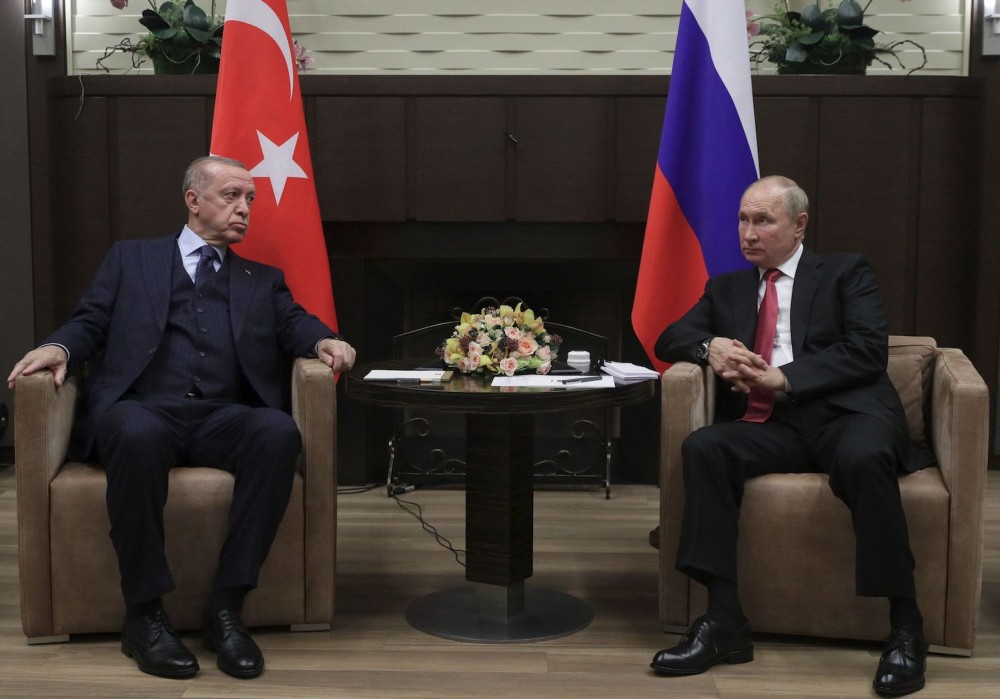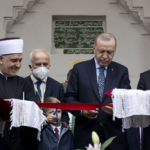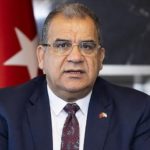The buildup of Russian forces on the Ukrainian border has sparked concern about possibly escalating the conflict in Ukraine’s east and prompted a flurry of diplomacy seeking to head off a renewed Russian offensive. Potential escalation between Moscow and Kyiv poses a serious challenge for NATO, which has long attempted to reassure Ukraine without provoking Russia.
This dilemma is particularly acute for Turkey, a regional power that has strained relations with many NATO allies. That’s partly a result of Turkish President Recep Tayyip Erdogan’s cultivation of Moscow but also because Erdogan has pursued a deeper political and military relationship with Ukraine that some allies view as highly provocative.
For now, Ankara appears to be betting that the crisis on Ukraine’s borders can be resolved diplomatically. Yet Russian officials perceive Ankara’s military-technical relationship with Kyiv and its involvement with the Crimean Tatar community as provocative gestures. And with Turkey’s economy teetering, Erdogan’s domestic popularity slipping, and standoffs between Turkish and Russian forces in theaters from North Africa to the South Caucasus, Turkey is among the current NATO members with the most to lose should the confrontation on Ukraine’s borders escalate.
Turkey’s dilemma is a consequence of its pursuit of greater strategic autonomy and influence across a wider region that encompasses the Balkans, the Arab Middle East, and the Caucasus. This pursuit has left it isolated from many NATO allies and locked in a complex pas de deux with Russia.
Mostly associated with Erdogan’s Justice and Development Party, Turkey’s aspiration to reshape the regional order emerged following the Soviet Union’s collapse, as Ankara positioned itself to be a partner and patron for its post-communist neighbors while pursuing mutually beneficial ties with Moscow. More recently, changing U.S. priorities, including reduced support for Middle East interventionism and growing attention to Asia, have further encouraged this shift.
Yet Turkey’s balancing act has become increasingly difficult as tensions between Russia and NATO have deepened. Ankara reacted strongly to Russia’s 2014 annexation of Crimea and invasion of eastern Ukraine’s Donbass region. Sympathy for the Muslim, Turkic-speaking Crimean Tatar community targeted by Russian occupation authorities was widespread in Turkey, home of a large Crimean Tatar diaspora. Moscow also took control of much of the Ukrainian Navy’s ships and port infrastructure when it seized Crimea, dramatically shifting the balance of power in the Black Sea, overturning the Turkish navy’s previous advantage.
In response, Turkey extended political and diplomatic support to Crimean Tatar groups, emphasizing it would not recognize the Russian annexation. It also boosted military-technical cooperation with Kyiv, notably through the sale of advanced armed drones the Ukrainians deployed against the Russian-backed separatists in Donbass.
Ukraine was not the only, or even the most significant, outlet for Ankara’s ambitions. Turkey intervened in the Syrian civil war, primarily to prevent Syrian Kurds from consolidating their authority along the border. In 2020, Turkish forces intervened in Libya to bolster the United Nations-recognized interim government (with which it also signed a controversial maritime boundary agreement in December 2019 to secure access to oil and gas in the Mediterranean Sea). Also in 2020, Turkish weapons and proxies proved instrumental in Azerbaijan’s successful offensive to regain Armenian-occupied territory in and around Nagorno-Karabakh. In each of these theaters, Turkish and Russian forces faced off, at times engaging in direct clashes.
Despite escalating regional rivalry, Turkey has also pursued a strategic rapprochement with Russia in recent years. The main drivers of this rapprochement are, first, frustration with U.S. support for the Syrian Democratic Forces, whose largest component are Kurdish fighters from an offshoot of the Kurdistan Workers’ Party, and second, fallout from the Turkish military’s abortive 2016 coup attempt, which Erdogan blames on U.S.-based cleric Fethullah Gulen’s followers.
The most visible aspect of this rapprochement is Ankara’s decision to purchase the Russian S-400 air defense system (in part, seemingly, to guard against the Turkish Air Force’s participation in another coup attempt). This purchase led to Turkey’s expulsion from the U.S.-led F-35 fighter program. Yet it also gave Ankara diplomatic capital with the Kremlin that it has exploited to manage the standoffs in Syria, Libya, and the South Caucasus. In each of these theaters, Erdogan and Russian President Vladimir Putin have engaged in frequent high-level diplomacy, hammering out informal cease-fires designed to accommodate each side’s principal interests. Ankara apparently believes it will be able to apply a similar model to the conflict in Ukraine.
But although Moscow has been willing to tolerate Turkey’s more assertive stance in Syria, Libya, and the South Caucasus (in part because doing so helps reinforce the idea of Turkey being an independent regional player rather than a Western bulwark), Ukraine may prove to be a bridge too far.
Russian officials have hinted they regard Ankara’s support for the Crimean Tatars as a threat to Russian territorial integrity—insofar as Moscow regards Crimea as Russian territory—and the use of Turkish drones in Donbass has been cited as a catalyst for the current buildup of Russian forces along Ukraine’s border. Although these drones give Ukraine additional capabilities, their effect on the overall balance is limited, especially in the event of a high-intensity conflict involving Russian air power: Even with Turkish drones, Ukraine’s military has little hope of holding up against a large-scale Russian offensive.
Since U.S. President Joe Biden’s inauguration in January 2021, Ankara has attempted to patch up its outstanding quarrels with Washington and other NATO allies—in part because of concern that growing isolation leaves it increasingly vulnerable to Russian pressure. Yet attitudes in Washington have hardened in recent years. Tensions over the S-400 purchase have reinforced longstanding frustrations, particularly on Capitol Hill, and the Turkish government’s crackdowns on the press, civil society, and opposition parties have exacerbated this tension. Despite efforts to improve relations (including a Biden-Erdogan meeting on the sidelines of the NATO summit in June 2021), major change is unlikely until after Turkish elections (currently scheduled for 2023) that could see the end of Erdogan’s presidency.
In the meantime, Ankara risks diplomatic isolation and strategic overextension in the event of renewed conflict. Russia could step up pressure against Turkish interests (in Syria’s Idlib pocket, for instance) to make sure Ankara stays on the sidelines in Ukraine. It could also dangle carrots: Coupled with the downturn in gas supplies to Europe through Belarus and Ukraine, cancellation or suspension of the Nord Stream 2 pipeline by German regulators would be a boon for the Blue Stream and TurkStream pipelines, reinforcing (at least in the short term) Turkey’s ambitions to bolster its role as a transit state.
Yet the broader consequences of a Russian offensive against Ukraine are likely to be negative, such as the further consolidation of Russian military/naval superiority in the Black Sea, the weakening of Turkey and Ukraine’s partnership, further damage to the Turkish economy, and the potential for refugee flows and attacks against Turkish interests in Syria and elsewhere.
Escalation of the conflict between Russia and Ukraine would be a tragedy for much of Europe. For Turkey, it could spell the end of the long-running balancing act between NATO and Russia—along with ending the ambition for regional influence that has defined Erdogan’s time in office.
The views expressed in this article are those of the author and are not an official policy or position of the U.S. National Defense University, the U.S. Defense Department, or the U.S. government.
By: Jeffrey Mankoff – a distinguished research fellow at the U.S. National Defense University’s Institute for National Strategic Studies specializing in Russian and Eurasian affairs and a nonresident senior associate at the Center for Strategic and International Studies. He is the author of the forthcoming book, Empires of Eurasia: How Imperial Legacies Shape International Security.
Source: FP



